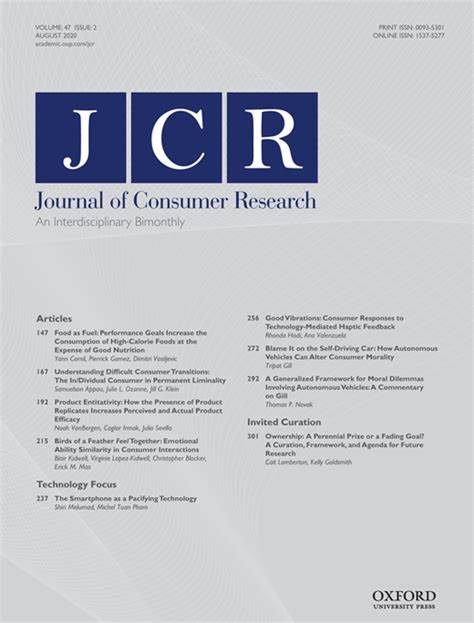自私易[TQ1]:何时以及为何一个人的影响力不亚于多人
IF 6.4
1区 管理学
Q1 BUSINESS
引用次数: 0
摘要
以往有关社会影响力的研究发现,在其他条件相同的情况下,在激励他人采取某种行为方面,一群人通常比一个人更有影响力。目前的研究对这一看似直观的观点提出了挑战,表明其有效性取决于焦点行为是否自私。七项实验表明,在鼓励非自私行为时,多人确实比单个人更有影响力,但在鼓励自私行为时,单个人的影响力可能与多人一样大。我们提出的证据表明,之所以会出现这种现象,是因为人们通常偏好自私的选择,并为自己的行为寻找理由。自私行为,无论是由单个人还是由一群人表现出来的,都会为他们的自私行为偏好提供方便的理由。然而,当涉及到无私行为时,则需要更大的影响群体来抵消他们的自利倾向。支持这一机制的是,当人们已经有了不自私的偏好,或者当自私行为难以自圆其说时,效果就会逆转。本文章由计算机程序翻译,如有差异,请以英文原文为准。
Easy [TQ1]to Be Selfish: When and Why is One Individual as Influential as Multiple Individuals
Past research on social influence finds that, all else being equal, a group of people engaged in a particular behavior is generally more influential than a single individual in inspiring others to adopt that behavior. The current research challenges this seemingly intuitive idea by showing that its validity depends on whether the focal behavior is selfish. Seven experiments show that while multiple people are indeed more influential than a single individual in encouraging unselfish behavior, a single individual can be just as influential as multiple people in encouraging selfish behavior. We present evidence that this phenomenon occurs because people generally have a preference for the selfish option and seek justification for their actions. Selfish behavior, whether exhibited by a single individual or a group of people, provides a convenient justification consistent with their preference for selfish behavior. When it comes to unselfish behavior, however, a larger group of influencers is required to counteract their self-benefiting tendencies. Supporting this mechanism, the effect is reversed when people have a pre-existing preference for unselfishness or when selfish behavior is difficult to justify.
求助全文
通过发布文献求助,成功后即可免费获取论文全文。
去求助
来源期刊

Journal of Consumer Research
BUSINESS-
CiteScore
12.00
自引率
9.70%
发文量
53
期刊介绍:
Journal of Consumer Research, established in 1974, is a reputable journal that publishes high-quality empirical, theoretical, and methodological papers on a wide range of consumer research topics. The primary objective of JCR is to contribute to the advancement of understanding consumer behavior and the practice of consumer research.
To be considered for publication in JCR, a paper must make a significant contribution to the existing body of knowledge in consumer research. It should aim to build upon, deepen, or challenge previous studies in the field of consumption, while providing both conceptual and empirical evidence to support its findings.
JCR prioritizes multidisciplinary perspectives, encouraging contributions from various disciplines, methodological approaches, theoretical frameworks, and substantive problem areas. The journal aims to cater to a diverse readership base by welcoming articles derived from different orientations and paradigms.
Overall, JCR is a valuable platform for scholars and researchers to share their work and contribute to the advancement of consumer research.
 求助内容:
求助内容: 应助结果提醒方式:
应助结果提醒方式:


